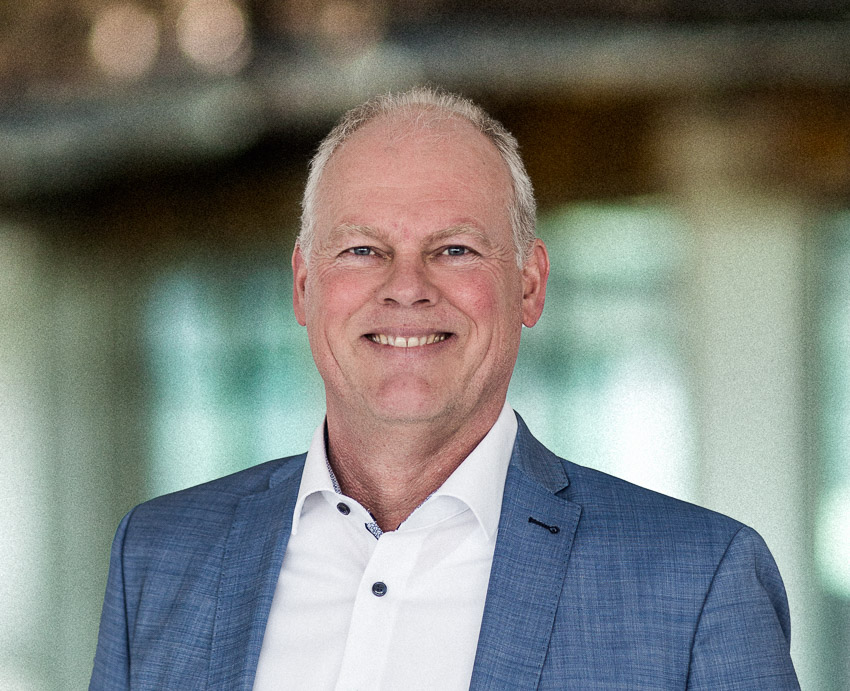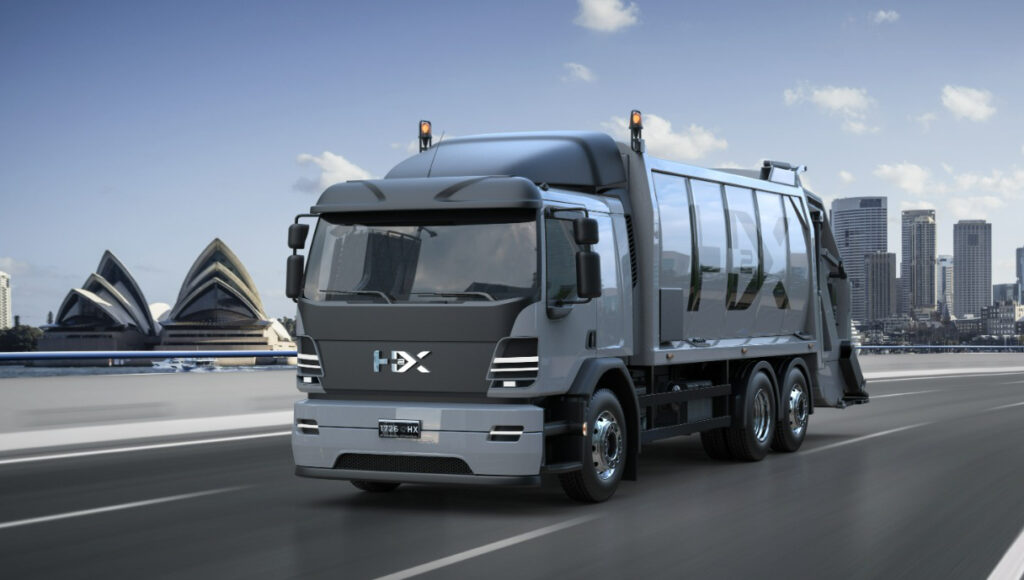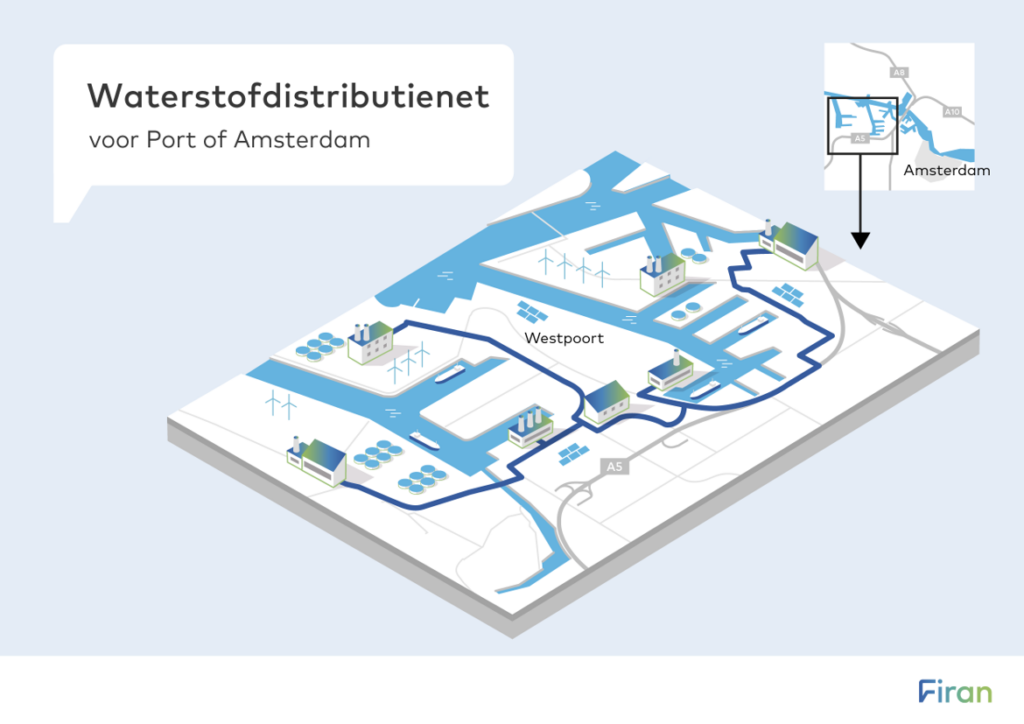On Thursday 22 February we will be organising another H2 Knowledge Café. This time we will be discussing the sustainability of business parks in times of grid congestion. One of the speakers is René Ammerlaan, Business Developer Hydrogen at Firan.
Firan – a subsidiary of network company Alliander – helps municipalities, project developers and housing corporations with the development, realization and exploitation of open and unregulated energy infrastructures. And wants to make new forms of energy accessible to everyone. For example, by making heat, cold, steam, sustainable gases or CO2 locally available to households, companies and institutions.”
During the day H2 Knowledge Café René Ammerlaan discusses the possible role of hydrogen in making industrial estates more sustainable and takes us through the current state of affairs regarding the planned hydrogen distribution network in the Amsterdam port area.

1. Many entrepreneurs on business parks want to become more sustainable, but don't know how. What tips can you give?
“Find a party that can help you. Ask for support to sharply define the issue you are facing. Also look at the collective possibilities that are available. What are companies doing in the area? Talk to an association of entrepreneurs and explore the possibilities on a knowledge platform.”
2. How promising are collective solutions, such as energy hubs?
“If more companies take the initiative, a collective approach is certainly promising. With a Quick Scan or feasibility study, you can quickly gain insight into whether, for example, a local form of energy balancing is a possibility.”
3. What is the biggest obstacle to reaching these kinds of collective solutions?
“Local factors are important, such as the presence of energy sources and energy use on a business park. But in most cases it is a cultural issue. Entrepreneurs are not sufficiently aware of the urgency of sustainability. Plus that in many cases there is a lack of direction to collectively tackle and shape matters. Dthat is also why the role of governments and network companies is changing. Where Alliander was involved in developing and operating networks, Firan takes on much more of that management role.”
4. Where do you see the most important applications of hydrogen?
“Hydrogen is especially important for industry. You can think of high-temperature processes in the chemical and food industries. But I expect hydrogen to also play a major role in heavy transport. And as an energy carrier in places where other forms of energy are not or poorly available.”


5. What is the potential of hydrogen in making industrial estates more sustainable?
“Hydrogen is one of the most important energy carriers for industry. With Firan we are fully engaged in the development of hydrogen distribution networks. The first distribution networks will be operational around 2026/2027. It is of course important that by then both the feeders if hydrogen buyers are also ready for it!”
In addition, hydrogen is important for balancing the energy grid on industrial estates. At the moment we are still doing this on a project basis, but in about 5 or 6 years we want to work in a regulated way. By then there will also be a regional grid operator for hydrogen. The programs to further develop this scenario have already started.”